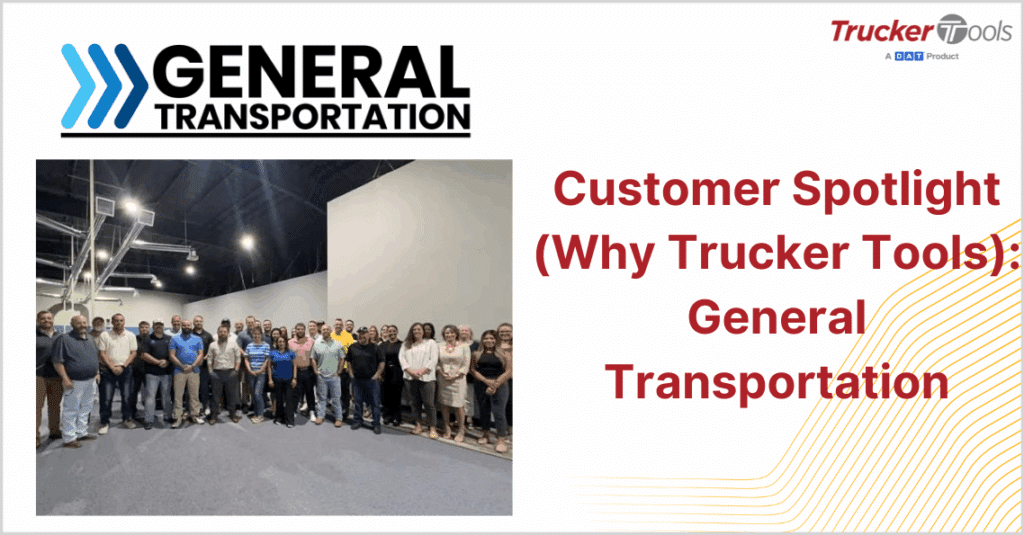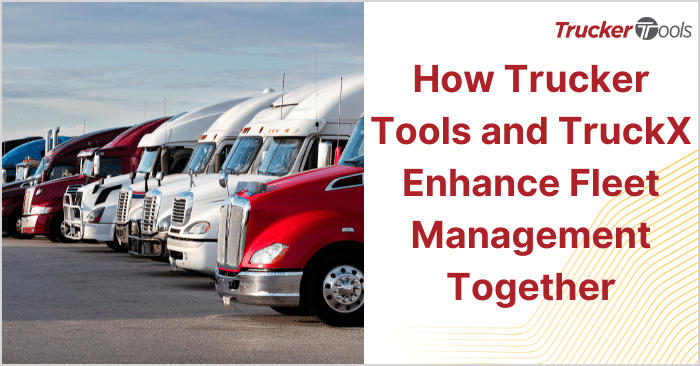Kirsch Transportation’s Jeremy Becker on the Power of a Service-First Approach and Why the Human Element Matters More Than Ever in Transportation

We recently had the good fortune to speak with Jeremy Becker, Chief Revenue Office for Kirsch Transportation, a woman-owned, family-operated logistics company that’s built its reputation on servicing shippers with short lead times. Kirsch Transportation provides dry van, refrigerated, open deck, intermodal, expedited and hazmat freight services to Fortune 500 companies. Real-time visibility of freight is crucial to Kirsch Transportation’s service model. In our conversation, Becker spoke about the role that digital load tracking plays in the company’s service-centered approach and about some of the biggest changes that he’s seen in transportation over his 25-year career.
A 25-Year Career in Trucking and Logistics
Becker started out working on the carrier side of the transportation business back in 1997. After working in operations-related carrier jobs for several years, Becker began working for Crete Carrier Corporation as a project manager and managing dedicated fleets, as well. After 11 years with the company, Becker was recruited to work for another large trucking company on the West Coast as part of its California sales team.
With the West Coast carrier, Becker managed all accounts in the California area and brought on new customers working out of the company’s corporate office in Seattle. During the 2008 recession and following years, Becker was doing a lot of travel for business development.
“I was still having success, but I was really having to go hard to try to bring on new customers because it was a really difficult time with the economy the way it was,” said Becker. “I tried to leave the trucking industry altogether and I started working on a master’s degree. One day the ownership of Kirsch Transportation reached out to me. They’d heard that I was out of the industry, but said they knew that I had multiple years of transportation experience. I met with the ownership and here I am today, 11 years later, having been in a couple of different roles with this company. Back when I started at Kirsch, we were roughly about an $8 million company. Just this past year, we cleared $182 million in sales. We’ve brought on a lot of new business and updated a lot of things that mattered in our space over the last 10 years. My role right now centers on making sure that our top 50 customers continue to grow, and that Kirsch continues to grow.”
Digital Load Tracking as Part of a Service-First Mentality
Becker told us that Kirsch Transportation is fortunate to have incredible relationships with its customers all the way down to the manager and dispatch level that showcase the company’s commitment to service. Kirsch is a 100 percent non-asset brokerage, but its goal is to provide service levels that compare with or exceed that of an asset-based competitor. Becker reports that Kirsch’s high service levels over the last several have years pushed the company’s revenue and volume higher and higher. Becker said that being able to provide a high level of visibility compliance plays a significant role in all of the above. Kirsch Transportation currently uses Trucker Tools’ real-time load tracking for visibility in its operations.
“I remember meeting Prasad, Trucker Tools’ Founder and CEO, at a McLeod user conference maybe four years ago,” said Becker. “We felt that Trucker Tools was doing a lot of fantastic things and that the company was pushing the envelope on things that we needed. We felt like Trucker Tools was and is working to enhance its software altogether. We made the decision to use both Trucker Tools’ load tracking and MacroPoint for tracking and tracing purely because some drivers and dispatchers like one or the other. Giving them the ability to choose helped tremendously in the beginning. To this day, we still give our dispatchers the ability to use both.”

The Evolution of the Transportation Industry
With his unique perspective of having worked in both freight brokerage and on the carrier side of the business, we asked Becker for his thoughts on how the transportation industry has changed over the last 25 years. Becker told us that the biggest shift has happened within trucking.
“I’ve been in the industry since 1997 and I’ll be the first to tell you that recruiting and attracting drivers has never, ever been easy,” Becker said. “It’s very difficult to find drivers and it’s very difficult to find good drivers. Quite frankly, I don’t think the newest generation finds trucking that appealing. I think that getting drivers into trucks is probably the biggest demand that we have as an entire industry and it’s going to take additional compensation. The industry also needs the ability to continue and create more regional and local settings for drivers where it gets them home at night.”
Despite advances in technology and changes that have occurred in the transportation industry over the last 25 years, Becker told us that one thing hasn’t changed: the need to have a real person answer the phone when a customer calls.
“The ability to accept and blend technology into how we function on a day-to-day basis is very important, but at the same time there still is a need for the human element,” Becker shared. “One thing that our company does quite well is we understand the technology piece and we’re always inviting that into and integrating it into the way we do our jobs. At the same time, we need to have knowledgeable people that can answer the phone when a customer calls and has questions.”
To learn more about Kirsch Transportation, visit https://kirschtrans.com/.
Schedule a free demo of Trucker Tools’ Smart Capacity, which includes real-time load tracking, digital freight matching and Book It Now®.





